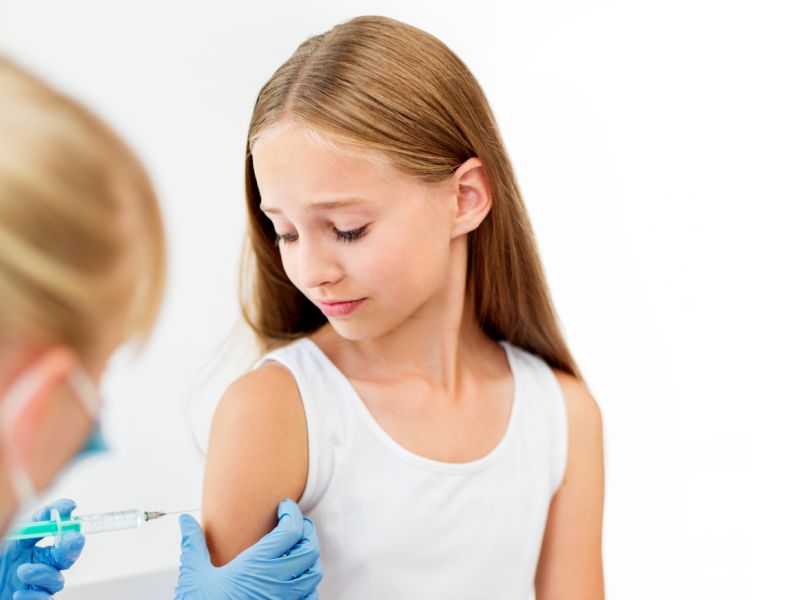Still Too Few Teens Getting the HPV Vaccine

MONDAY, Jan. 28, 2019 (HealthDay News) -- HPV vaccination rates for younger American adolescents are alarmingly low, researchers say.
"While we have seen gains in HPV vaccination coverage, we are still falling behind at the younger ages," said study lead author Robert Bednarczyk. He'sassistant professor of global health and epidemiology at Emory University in Atlanta.
Human papillomavirus (HPV) is a sexually transmitted virus that can cause cervical, vaginal and vulvar cancer in women; penile cancer in men; and mouth, throat and anal cancer in both sexes.
Two shots of the HPV vaccine, six to 12 months apart, are recommended for kids who are 11 or 12 years old.
For the study, researchers analyzed 2016 data from a nationwide U.S. Centers for Disease Control and Prevention survey of parents.
The findings showed that about 43 percent of kids aged 13 to 17 were fully vaccinated against HPV. But only about 16 percent of 13-year-olds and about 35 percent of 15-year-olds had received all recommended doses of the vaccine.
"In general, we need to do a better job of recommending the HPV vaccine at the routine, adolescent, and well-child visits, with a particular focus on 11 to 12 years of age," Bednarczyk explained in a news release from the Infectious Diseases Society of America.
Nearly 80 million people in the United States are infected with HPV, which causes about 34,000 cancers a year. The latest version of the vaccine protects against seven of the most common types of HPV, the study authors noted.
The new report was recently published in the Journal of Infectious Diseases.
Advantages to completing vaccination by age 13 include a stronger immune response and better protection against HPV. The CDC recommends three shots instead of two for kids over 14 who have not been vaccinated.
More information
The U.S. Centers for Disease Control and Prevention has more on HPV vaccination.

The news stories provided in Health News and our Health-E News Newsletter are a service of the nationally syndicated HealthDay® news and information company. Stories refer to national trends and breaking health news, and are not necessarily indicative of or always supported by our facility and providers. This information is provided for informational and educational purposes only, and is not intended to be a substitute for medical advice, diagnosis, or treatment.

